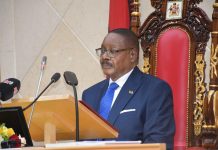Africa-Press – Malawi. Continued negative economic impact from the Covid pandemic and the Russo- Ukrainian War is expected to push least developed countries including Malawi into deeper wells of debt, jeopardising the dream of debt sustainability. This is according to a monthly economic report for June from one of the country’s financial advisory firm, Bridgepath Capital.
According to the report, as financial conditions in emerging markets and developing economies (EMDEs) worsen, a sustained period of aversion and capital outflows could raise the costs of borrowing within the region and trigger currency depreciations.
“These developments could further elevate the debt sustainability risks and fuel inflation in many economies,” reads the report.
According to figures from the Ministry of Finance, total public debt for Malawi has nearly doubled within four years, now hovering above the recommended 60 percent of the country’s gross domestic product (GDP).
The figures indicate that as of June 2018, Malawi’s total public debt amounted to K2.9 trillion with external and domestic debt accounted for 50.1 percent and 49.9 percent of the total debt, respectively.
During the year, in terms of, total debt as a percentage of GDP in nominal terms was at 56.8 percent of which, external debt was at 28.4 percent and domestic debt was at 28.3 percent. Four years down the line, Malawi’s total debt is at K5.7 trillion accounting to approximately 62 percent of the GDP.
Economist from the Malawi University of Business and Applied Sciences Betchani Tchereni agreed with the report adding that Malawi’s debt is already unsustainable and the borrowing will only make it worse.
He added that avoiding borrowing, however, is also not an option because for a country like Malawi in which budget deficit increases every year, it will only affect government operations.
“There are countries whose debt to GDP is double ours but they continue borrowing and they are not worried because they borrow for purposes of developing the country and not for consumption,” he said.
Minister of Finance Sosten Gwengwe said when presenting the 2022-23 National Budget that public debt management remains key to the government. Recently, government through the Secretary to President and Cabinet also announced expenditure control measures which government indicated that aims at reducing the country’s fiscal deficit.
Justin Mkweu is a fast growing reporter who currently works with Times Group on the business desk. He is however flexible as he also writes about current affairs and national issues.
For More News And Analysis About Malawi Follow Africa-Press






